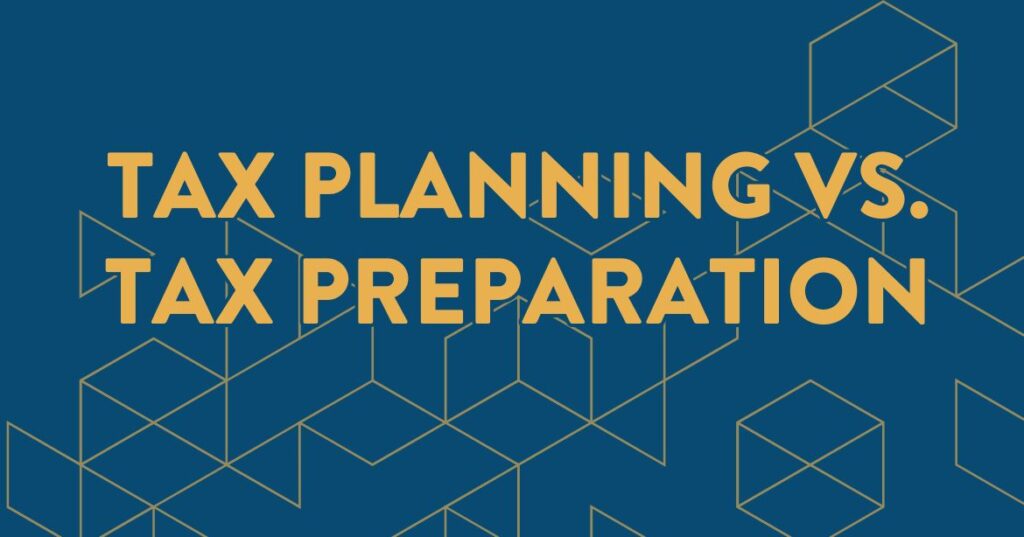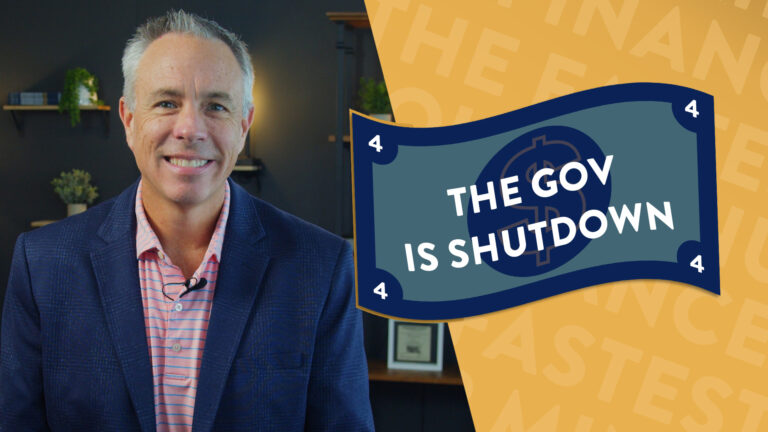Understanding the Difference Between Tax Preparation and Planning
With each passing year, taxes seem to become more complicated. Take the terms tax planning and tax preparation, for example. Although often used interchangeably, these financial services are quite different — in their scope, their goals, and, ultimately, their overall impact on your financial plans.
What Is Tax Preparation?
Almost every adult in the United States is familiar with tax preparation. This annual process involves preparing and filing your tax return with the IRS. Tax preparation determines whether you owe more taxes or are due for a tax refund.
When Do You Prepare Taxes?
For most people, tax time comes once per year. Tax returns are usually due on April 15, giving you a specific window for gathering information, filing your tax return, and submitting payment if needed.
What Are the Goals of Tax Preparation?
The goal of most taxpayers is to file their taxes correctly and avoid penalties caused by noncompliance. While you can maximize available credits and deductions, the goal of tax preparation isn’t necessarily to minimize the amount you owe or create new savings opportunities.
Do You Need Professional Assistance?
Taxpayers can prepare their taxes independently. However, many people and businesses work with a professional to help them prepare their taxes in the months leading up to tax filing. This relationship does not require an in-depth understanding of your financial situation and may only involve a couple of meetings.
What Is Tax Planning?
Tax planning is a careful, long-term process that utilizes different strategies and meticulous record-keeping to help minimize the amount you pay in taxes.
While most people prepare taxes, few taxpayers take advantage of tax planning. By reviewing your overall financial picture, including income, investments, and past returns, a financial advisor can help lower your tax burden over time, potentially increasing your retirement income.
When Do You Start Tax Planning?
Tax planning is a year-round and ongoing process. You can start this year, or you can begin in the future. The strategies involved are long-term, which means the benefits are not always immediate.
What Are the Goals of Tax Planning?
The goal of tax planning is not just to reduce your taxes this year — but to lower your tax burden over your lifetime. Comprehensive tax planning looks at every aspect of your financial life, including:
- Personal income strategies
- Business income planning
- Estate and trust planning
- Charitable giving
- Investment portfolio strategies
- Retirement savings
By minimizing your tax liabilities, maximizing your deductions, applying relevant tax credits, and optimizing withholdings, tax planning helps proactively secure your financial assets.
Do You Need Professional Assistance?
Tax planning is a highly involved and complex process. A professional financial advisor, like the ones at GenWealth Financial Advisors, will take the time to understand your unique financial situation and provide customized tax planning services.
Ready to Implement a Tax Planning Strategy in Your Financial Plan?
Tax preparation versus tax planning — both are critical financial services that can help minimize the taxes you owe and optimize your tax-saving opportunities. Yet, only tax planning requires a thorough understanding of the many complex strategies and opportunities available to taxpayers.
If you are ready to proactively create new savings opportunities, reach out to GenWealth Financial Advisors. Our customized services include thoroughly examining your financial picture to determine the best tax planning strategies to help you reach your goals.
Contact us today to schedule an appointment.






